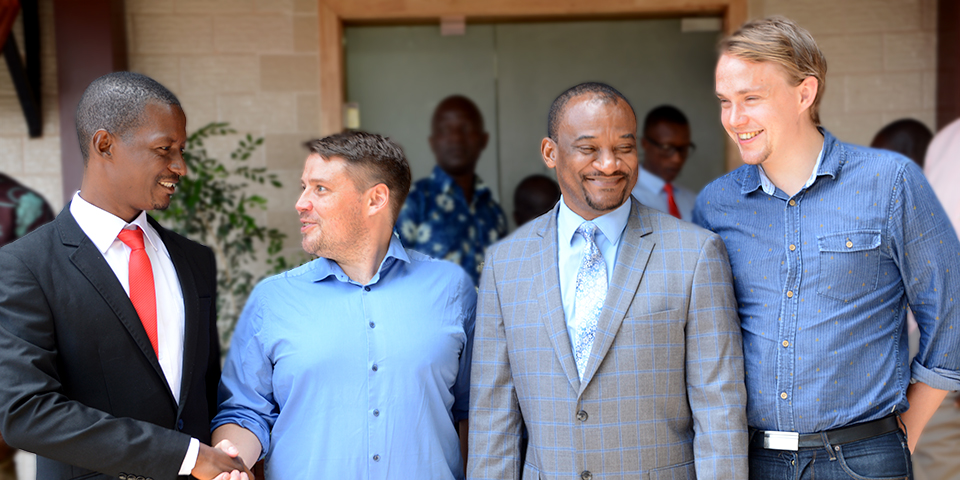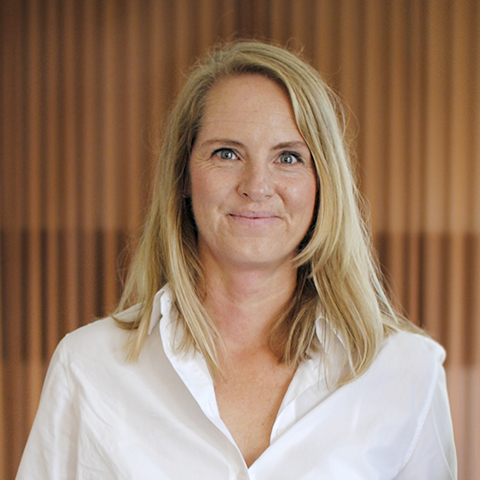How we work with development cooperation

The Ministry of Commerce and Industry in Liberia had the objective to get the country into the World Trade Organization. National Board of Trade Sweden was there to support the country on its road to WTO.
Through development cooperation with the National Board of Trade Sweden, developing countries are better able to increase their trade with other countries and reduce their dependence on aid. We are experts in how a well-designed trade policy can contribute to prosperity through factors such as stronger growth, more jobs and reduced poverty.
The National Board of Trade's development cooperations aim to strengthen trade competence in low- and middle-income countries, based on the 2030 Agenda. The overarching goal is to create favourable conditions for developing countries to participate in international trade and contribute to sustainable development.
Different types of development cooperation
The National Board of Trade's development cooperations can take several different forms:
Educational initiatives – Trade Academy
Trade Academy is our trade policy training programme, which aims to empower individuals in developing countries. We have three different programmes with different focuses: Trade Academy Trade Policy is intended for civil servants in government agencies. Trade Academy Trade Promotion is intended for individuals working with export promotion initiatives. Trade Academy EU Integration is a free training programme for trade officials and officials working on EU integration.
Cooperations with countries and regions
We enter into long-term cooperations with individual countries (bilateral cooperation) or with entire regions (regional cooperation). The aim of the long-term cooperations is to strengthen the individual and institutional capabilities of the country or region to conduct international trade.
Support for exporters – Open Trade Gate Sweden
Through Open Trade Gate Sweden, we work to promote exports from developing countries to Sweden and the EU. We guide exporting companies and industry organisations in matters related to regulations as well as product and market requirements, and we help companies to establish contacts in the Swedish market. We also enter into long-term cooperations with industry organisations in order to increase knowledge of the European and Swedish markets.
What characterises our work
At the National Board of Trade Sweden, we are experts in trade. We know the EU's internal market, EU trade policy and what it means to trade with the EU. In addition, our development cooperation is characterised by four things:
- The civil servant perspective
We work daily on the same issues as our partners. In this way, we are colleagues. - Cross-cutting focus on sustainability
We recognise the impact of trade on sustainability. This is reflected in our goals, in our daily work and in how we communicate knowledge. - Demand drives our work
We contribute what our partners need and demand. No two countries are the same. - A coaching approach
We work in a supportive way, rather than doing the work ourselves. Only then can we ensure that knowledge is disseminated, and contribute to long-term change.
How development cooperation is managed
The National Board of Trade's development cooperation is part of Swedish aid. The activities are financed by Sweden's aid budget and we work in accordance with Swedish aid policy. The countries we cooperate with are on the OECD/DAC list of developing countries. In addition to the guidance in the aid policy, the National Board of Trade receives annual guidelines from the Government. These may, for example, state that certain countries or issues are to be prioritised for aid in the current year. At the same time, the National Board of Trade can set its own priorities within its activities based on the needs we see.
OECD/DAC list of developing countries
Focusing on goals and results
The National Board of Trade's development cooperation is driven by goals and results. Together with our partners, we set long-term and short-term goals based on a theory of change. This means that we make an assumption about what effects each initiative is expected to lead to. The global goals of the 2030 Agenda permeate our development cooperation, and sustainability is therefore always integrated into the goals we set.

Would you like to know more about our development cooperation?
Do you have questions about how we work, or are you interested in a cooperation? We would love to hear from you.
Sara Sandelius
Deputy director
Phone: +46 8 690 48 30
E-mail: firstname.lastname@kommerskollegium.se
